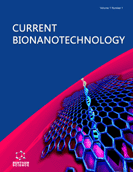Abstract
Pharmakokinetics is the study of the liberation and related absorption, distribution, metabolisation and excretion (LADME) of an active on the molecular level and contributes towards a better understanding of drug action and related side effects. The use of nanocarriers as drug delivery systems enables the application of drugs in particulate form, which distinctly changes the LADME profile of the active. Reasons are for example the different access of particles versus molecules to tissues and cells, their interaction with blood proteins and the immune system. Thus the term nanopharmacokinetics (= particulate level) is suggested. The nanopharmacokinetic profile of particles is mainly influenced by the protein adsorption pattern, which in turn is determined by the physico-chemical properties of the particles. Therefore, to understand and predict the in vivo fate of nanoparticles in the body, more insights into the correlation between particle properties and interaction with the body is needed. Intense research for more than 25 years showed, that this correlation cannot be extensively evaluated by a few academic labs, here indeed “big data” is required to uncover the hidden relationships. If this can be achieved nanopharmacokinetics might in future play a similar important role for nanocarriers as pharmacokinetics did for drug molecules by now. Hence nanopharmakokinetics will be the key to efficiently modulate and to optimize drug delivery at maximized tolerability (i.e. minimized potential nanotoxicity effects) for safe and efficient nanomedicines in the future.
Keywords: Nanopharmacokinetics, pharmacokinetics, nanocarrier, protein corona, nanoparticle, properties.
Graphical Abstract
 30
30 1
1 1
1 1
1

